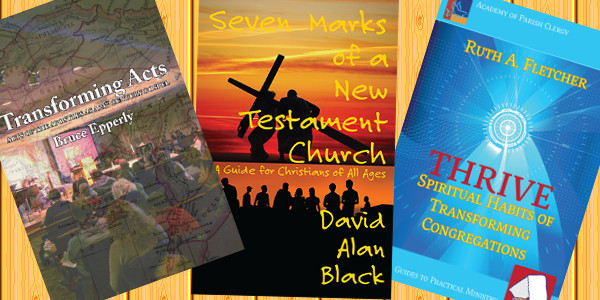Seven Marks of a New Testament Church – Sacrificial Living
… salvation of necessity leads to service. (Seven Marks of a New Testament Church, p. 43)
This is the final post of my series on this book, and I’d like to make an observation about the entire enterprise. I’ve become increasingly convinced of two things during this study. First, there is no single form of church organization or structure mandated by the New Testament. Second, there are quite a few principles that should be applied in any church structure that we may choose to use.
Those may sound like they are at least in tension, but I think any tension is both appropriate and quite possibly intentional on the part of New Testament writers. I also do think that one’s organizational structure can either aid in applying Christ-like principles to one’s church structure or they can hinder us from doing so. Unfortunately, we can turn the best organizational plan into something dangerously hierarchical and lacking in accountability.
The determining factor in how our churches will function is whether we are prepared to actually be the body of Christ, living under one Spirit (1 Corinthians 12). Unfortunately, many have seen the test of the church as being the power of the miraculous signs that are displayed, when the real message of that chapter (really 1 Corinthians 12-14) is that the test of the miraculous signs is the one Spirit.
This final chapter of Seven Marks is critical for this reason. It says that we really mean it. Now we can’t neglect the other elements, but the final demonstration is going to be involved in sacrificial living. Note that the title is not “sacrificial giving.” We can give sacrificially without accomplishing anything for the kingdom. When we are emotionally persuaded to give large amounts of money for an unneeded or ostentatious facility or program, we can give sacrificially, while still failing to live sacrificially.
What does it mean to live sacrificially? I must, of course, recommend reading this entire chapter. But let me suggest that for the Christian, this means putting everything we have and everything we are in God’s hands. It’s not a percentage of giving. It’s not a percentage of our time for worship. It’s a complete commitment of ourselves to being the body of Christ, to act as citizens of God’s kingdom while we are aliens here. (Mixing metaphors is fun!)
Christianity is not something you tack on to the rest of who you are. Yes, I belong to the ___ club, I’m part of the ____ political party, and as for religion, I’m a Christian. No! Being a Christian is not like a club or political party membership. It defines who you are.
Bruce Epperly, in Transforming Acts: Acts of the Apostles as a 21st Century Gospel, p. 46 puts it this way:
As Acts 2 proclaims that the first Christians “devoted themselves to the Apostles teaching, to the community, to shared meals, and to prayers …. All who believed were together and had all things in common; they would sell their possessions and goods and distribute the proceeds to all, as any had need.” They did not separate economics from theology or spirituality. Within the body of Christ, unity of spirit leads to the quest for physical well-being. While there may have been inequalities in income and property, there was no destitution or neglect. Everyone had enough of the Earth’s bounty to have the energy and inspiration to share the good news of God’s life-transforming Shalom. Putting God first lead Jesus’ first followers to generosity and sacrificial living in which the neighbor’s need outweighed property rights and personal comfort.
Ruth Fletcher expresses the vision and the goal well in her book Thrive: Spiritual Habits of Transforming Congregations, p. 48:
Those first followers gathered around Jesus’ table in order to be shaped by the values embedded in the story of God’s New Creation. They came together to be equipped with the tools and the courage necessary to make God’s intentions real. Although not large in number, the small bands that followed Jesus began to affect the whole fabric of the culture around them. They were like grains of mustard seed springing up like bushes everywhere. They were like leaven affecting the whole loaf, like salt flavoring the whole pot of soup. They were like light shining from a lamp stand showing what God had in mind for the world.
Today we look to large church programs with the goal of bringing people into the church. Might we not accomplish more if we became those grains of mustard seed in order to impact the world around us. In order to do that we have to be willing to live sacrificially, not as a momentary impulse, but as a lifestyle.
One last thing I’d like to note about this series is that, while I’ve followed Dave Black’s outline from Seven Marks, I’ve been able to find very similar notes from my other two authors. These three authors come from different denominations and different tradition streams, yet they find many similar principles for how we should live as the church.
There are many things we can argue about, but I perhaps we can agree that we should be living as a community, caring for one another, and carrying out our witness through caring for the entire world.







